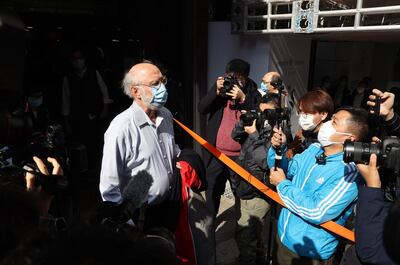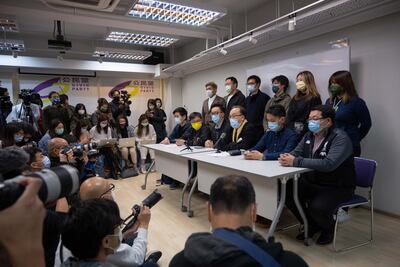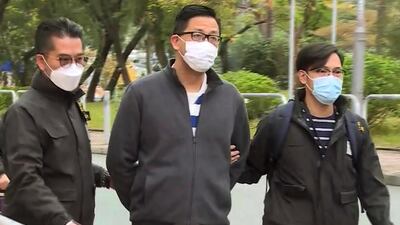Joe Biden’s incoming Secretary of State accused China of trying to stamp out democracy after more than 50 Hong Kong opposition figures were arrested by police.
The crackdown is their biggest operation since a draconian national security law was imposed on the city.
It is Beijing’s latest salvo in the battle to eliminate opposition in the financial hub after millions protested in 2019 against Chinese interference.
The protests largely subsided in June 2020 after the Hong Kong National Security Law effectively outlawed opposition to China.
Police confirmed 53 people – including an American citizen – were arrested in an early-morning sweep that involved about 1,000 officers.
The arrests were sparked by an attempt by opposition groups last year to win a majority in the city’s partially elected legislature.
Antony Blinken, the Biden administration’s Secretary of State nominee, said authorities were launching “an assault on those bravely advocating for universal rights”.
“The Biden-Harris administration will stand with the people of Hong Kong and against Beijing’s crackdown on democracy,” he said.
There was no immediate comment from the Trump administration.
Hong Kong’s security chief John Lee described the arrests as necessary and aimed at a group of people who tried to “sink Hong Kong into an abyss”.
In Beijing, foreign ministry spokeswoman Hua Chunying defended the dragnet, saying it impeded only the “freedom of some external forces and individuals” in Hong Kong “to collude with each other to attempt to undermine China’s stability and security”.

Those detained represented a broad cross-section of Hong Kong’s opposition, and included veteran former pro-democracy politicians such as James To, Andrew Wan, Lam Cheuk-ting and Claudia Mo, plus many younger activists.
Among the youth campaigners were Gwyneth Ho, a former journalist turned social activist, district councillor Tiffany Yuen and Jeffrey Andrews, a campaigner known for working with ethnic minorities.
Colleagues of Joshua Wong, one of the city’s best-known democracy activists, who is currently in jail, said via his official Facebook account that his home was searched.
National security police also searched a law firm known for taking on human rights cases.
John Clancey, an American lawyer working for the firm, was arrested on suspicion of subversion, news agency AFP reported two sources as saying. It is the first time a US national has been detained under the new law.
A fluent Cantonese speaker and long-term Hong Kong resident, Mr Clancey is a veteran legal activist.

“Continue to work for democracy and human rights in Hong Kong,” he told reporters as he was led away by officers.
The police operation also involved the media.
Three local news outlets – Stand News, Apple Daily and Inmediahk – said national security police visited to request documents.
“This is a real night of the long knives, the largest single attack upon democracy in Hong Kong yet,” Antony Dapiran, a lawyer who has written books on the city’s protest movement, wrote on Twitter.
Nathan Law, a prominent democracy leader who fled the country last year, accused authorities of trying to “extinguish the flames of resistance” with the latest detentions.
The foundations of the mass arrests on Wednesday were laid last summer when pro-democracy parties organised an unofficial primary for local legislative elections which were ultimately scrapped.
Only half the legislature’s 70 seats are popularly elected. The campaign’s aim was to win all 35 elected seats and take a majority in the legislature for the first time and try to block government policies.
More than 600,000 Hong Kongers turned out to vote in the unofficial poll, which infuriated Beijing.
Chinese officials at the time warned any attempt to win a majority and block government policies constituted subversion under the new security law.
The national security law targets acts Beijing deems to be secession, subversion, terrorism and collusion with foreign forces.
Officials said the security law would only target an “extreme minority”. But it swiftly silenced dissent and outlawed a host of peaceful political views, with dozens of prominent figures made targets before the operation on Wednesday.
In the past year, prominent democracy supporters have been arrested, jailed, barred from politics or have fled abroad.
National security crimes carry a maximum of life in prison and bail is rarely granted for those who are charged.
The law also toppled the legal firewall between Hong Kong’s independent judiciary and the mainland’s Communist Party-controlled courts.
China has claimed jurisdiction over especially serious security crimes and has allowed its security agents to operate openly in the city for the first time.

